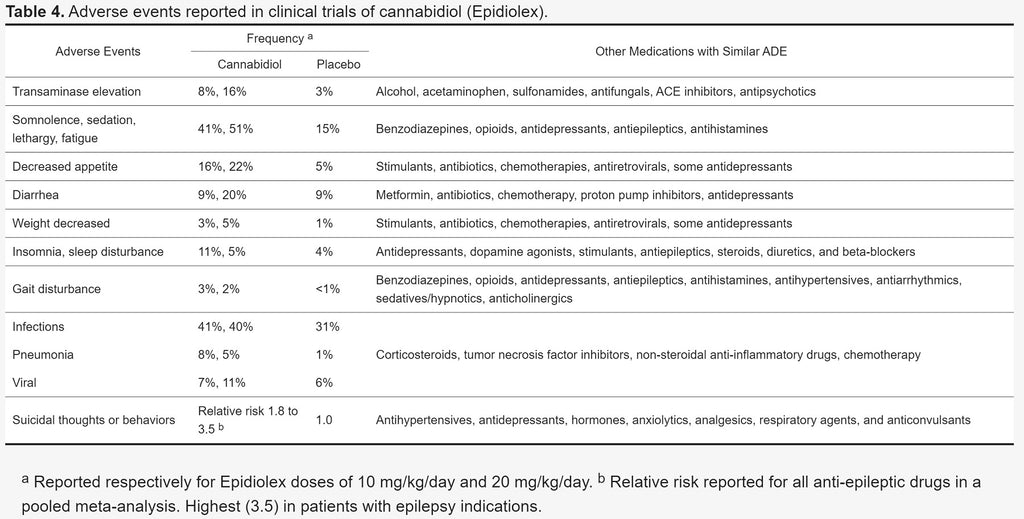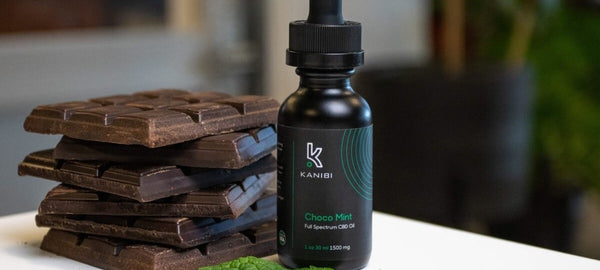Your Cart is Empty
Organic CBD Made with 💚 in Eugene, Oregon
Organic CBD Made with 💚 in Eugene, Oregon
Organic CBD Made with 💚 in Eugene, Oregon
Organic CBD Made with 💚 in Eugene, Oregon
October 01, 2019 7 min read
It’s increasingly common to meet people excited about CBD. From all walks of life everyone has a story about CBD and what it has done for them or a loved one.
Yet, there are plenty of questions too.
How could you not? It's insatiably interesting how the once-taboo cannabis plant contains an oil that may benefit our body's essential processes.
The problem is: Quality answers are few and far between. Who really wants to count on ‘I heard’, or, ‘they say’? You want real, validated, meaningful information on CBD.
Here we are going to do our best to demystify the world of cannabidiol. Not just through dry facts, but in a creative way that’s guaranteed to make you the most interesting person in the room regarding this new phenomenon.
| Disclaimer: This article is not meant to provide medical advice. In accordance with the Farm Bill of 2018, it is illegal to sell CBD advertised to treat or cure medical conditions. CBD is not intended to be used as a substitution or delay for licensed medical care. The following information is an evaluation of CBD and not an endorsement or claim promoting KANIBI products. |
Now let’s dig deeper.
CBD is short for cannabidiol, one specific cannabinoid naturally produced by the cannabis plant. It isn’t a lone chemical by any means. In fact, there are over 100 known cannabinoids in addition to CBD. The most well-known of these is the psychoactive cannabinoid THC (tetrahydrocannabinol), the active ingredient in marijuana.
Unlike THC, CBD does not produce a high or a state of disorientation. However, it can provide the relief some people obtain from THC.
Well for starters, they share a lot in common.
Neither THC nor CBD act as a food source to the body. Rather, they act upon receptors in our body to stimulate neurotransmission.
While THC acts to induce psychoactive effects, CBD's effects are limited to non-psychedelic processes.
They sort of look the same, too. Both CBD and THC are made up of 21 carbons, 30 hydrogen, and two oxygen atoms (C21H30O2). However, they are arranged differently to form two uniquely acting molecules.
In standard CBD supplements, there will be near-zero (< 0.03%) THC present. However, depending on the grade of purification, the other natural flora of cannabinoids may be present in addition to CBD.
In general, CBD products should be clearly labeled as containing CBD. Any hemp product which does not clearly label its CBD contents likely doesn’t contain any significant amounts.
Hemp oil and hemp seed oil, for instance, are labeled similarly to CBD products. These products, however, are made from the seed and stalk of the hemp plant - neither of which contains CBD.
For Kanibi products, we use full spectrum CBD oil in liquid applications, and CBD isolate in dry applications like pills and powder.
| Summary: CBD is extracted from the leaves and flower of the hemp plant, not to be mistaken for THC-rich strains of marijuana. CBD and THC are molecularly similar but chemically different by motif. CBD products are not to be confused for widely available hemp seed oil which does not contain any CBD. |
CBD products are used primarily for balance of the endocannabinoid system and a greater sense of well-being. It is not our place to make medical claims based on anecdotal evidence regarding CBD use. However, we will share our interpretations of recently published scientific literature that piques our curiosity.
Throughout the human body, there are vast systems of receptors that interact towards a centralized goal. Like all bodily functions, receptor systems are meant to function in a state of homeostasis, or consistent balance. CBD appears to interact with at least two of them, to an extent that is still unknown.
Cannabidiol (CBD) is able to interact with our body’s own natural endocannabinoid system. Yes, your body literally makes its own cannabinoids which participate in a regulated system.
Scientists are currently asking the question: What happens when this system is out of balance?
Cannabidiol appears to also interact with the opioidergic systems (pain sensitivity). The extent is less understood than the endocannabinoid system, however it is the topic of ongoing research.
Scientists are currently asking the question: How does CBD compare to current pain management solutions, in pre-, during, post-, or co-applications?
Research on CBD is still in the cutting-edge phase, but there are several ways that CBD may someday provide therapeutic effect.
Despite how hopeful evidence may be, the FDA prohibits companies to sell CBD advertised to treat serious conditions affecting the mind or body. And that is quite fair, as no nutraceutical should act as a barrier between an ill individual and educated medical care.
With that in mind, CBD products are best used for non-critical conditions, such as establishing:
Essentially everyday occurrences within the normal range of life. Not to be mistaken for an aggressive treatment to restore a normal life.
| Summary: The use cases for CBD are still being determined. While CBD is being examined for help treating serious conditions, the overall judgement, application, and strategy for such uses is unknown. Therefore, CBD should not be marketed or encouraged as a replacement for seeking medical diagnosis and treatment. However, in the case of daily life, CBD may be used to promote the senses of calm, collectedness, focus, and well-being. Some athletes may consider CBD in conjunction with post-exercise recovery strategies as well. |
CBD comes in many different forms. Here is a glimpse at their differences and how to use these types of CBD.
Oil form is the most popular way CBD is purchased and used. It is characterized by a standardized extract of CBD in tincture oil.
How to use CBD Oil Tincture (3 steps):
Note: if applying sublingually, hold the CBD in your mouth without swallowing for about a minute to allow contents to absorb.
Gummy form is also extremely popular, however not everyone has the discipline to moderate CBD in such a delectable form.
How to use CBD Oil Gummies:
Consume as many as necessary to achieve your desired dose of CBD using the back label as a guide.
CBD sports creams are the preferred method for applying CBD directly to the skin.
How to use:
Note: Do not apply to cut or damaged skin.
Kanibi does not promote this method of CBD use.
For the typical healthy adult, CBD is completely safe and well tolerated even at very, very high dosages.
However, CBD may interact with certain prescribed medications and it is still not known if CBD can influence an adolescents still-developing brain [19].
Here is a non-comprehensive chart showing recorded CBD-drug interactions in clinical trials:

CBD drug interactions sourced from Potential Adverse Drug Events and Drug–Drug Interactions with Medical and Consumer Cannabidiol (CBD) Use.
Users of medications with a ‘grapefruit warning’ should not consume CBD products.
| Summary: CBD is easy to take in all of its forms, in a few short steps. While CBD is safe for the average user, you should consult your doctor if you are currently taking prescribed medications as CBD can interact with specific drugs. |
CBD and its interactions on the body make up a rapidly growing field of study. Many presumptions behind CBD's suspected therapeutic uses are already being applied in daily life by many. However, we are still far out from definitive evidence that can be recommended on a large scale as medical advice.
Kanibi is excited to explore CBD innovation, and unravel the mystery alongside you. We will continue to share new developments in the field of CBD as they are released.
While we cannot make recommendations on how you can or should best enjoy your CBD, we do promise to go above and beyond to ensure that Kanibi products are of supreme quality.
